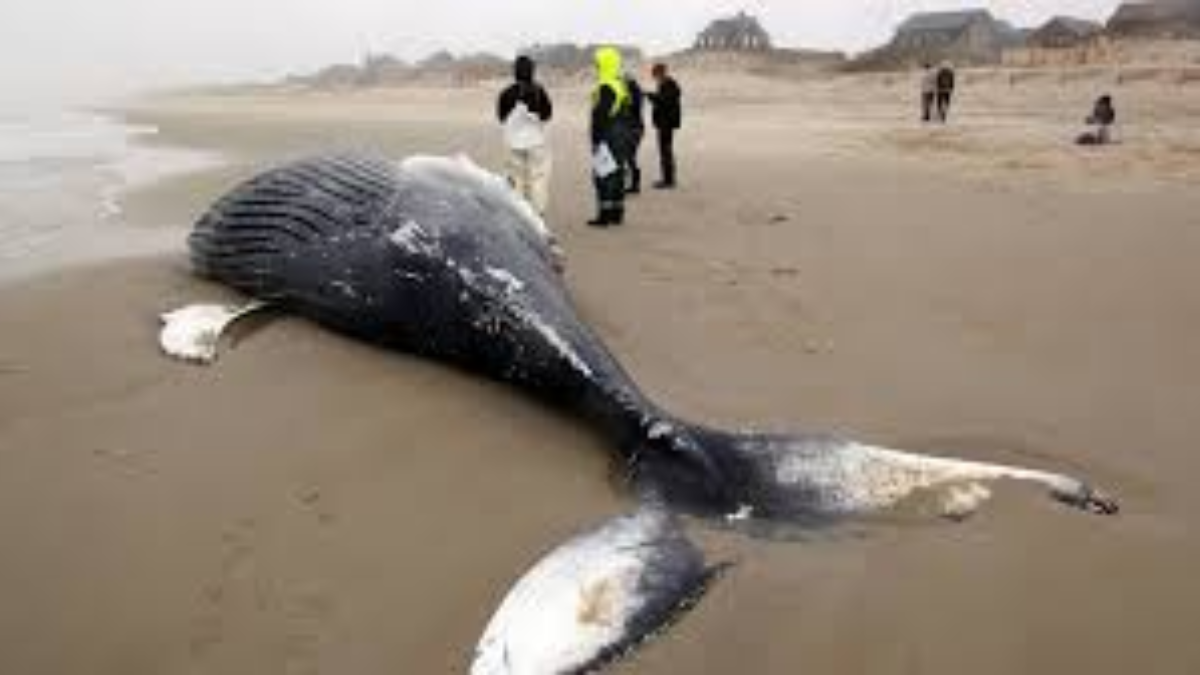In a rare and tragic occurrence, a humpback whale was found washed ashore on the Outer Banks of North Carolina. The discovery has sparked concern among local environmental groups and wildlife enthusiasts, as experts work to determine the cause of the whale’s death. This unfortunate event highlights the ongoing challenges faced by marine life and raises questions about the health of the ocean environment.
The Discovery of the Humpback Whale
The whale was discovered on the shores of Cape Hatteras National Seashore, a popular tourist destination known for its diverse marine life. Local residents and visitors who stumbled upon the scene were shocked to see the massive creature, which measured approximately 30 feet in length. Initial reports suggested that the whale had been dead for several days before being found, as signs of decomposition were evident.
Authorities from the National Oceanic and Atmospheric Administration (NOAA) and the North Carolina Marine Mammal Stranding Network quickly arrived at the site to investigate the situation and assess the whale’s condition. Experts conducted a necropsy to better understand what led to the whale’s beaching and death.
Cause of Death Under Investigation
While it’s still too early to determine the exact cause of death, marine mammal strandings are often linked to various factors, including illness, entanglement in fishing gear, or ship strikes. Humpback whales are migratory creatures, traveling long distances across the ocean, which puts them at risk of encountering human-made obstacles and environmental stressors.
Researchers are also considering the possibility of disease or malnutrition, as these can cause whales to become weak and disoriented, leading them to strand on beaches. Environmental factors, such as water temperature changes or pollution, may also play a role in the health of marine species, making it essential for scientists to gather as much information as possible from the necropsy.
Impact on the Local Ecosystem
The stranding of a humpback whale is a poignant reminder of the delicate balance in our oceans. Whales play a crucial role in marine ecosystems, contributing to nutrient cycling and supporting the health of oceanic food webs. The loss of such a large creature can have ripple effects throughout the ecosystem, particularly in coastal areas where marine life is abundant.
The Outer Banks, known for its thriving marine environment, has seen an increase in whale sightings in recent years, which experts attribute to successful conservation efforts. However, the beaching of the humpback whale serves as a stark reminder of the vulnerabilities facing marine mammals in today’s world.
Conservation Efforts and Moving Forward
The incident has spurred renewed calls for stronger conservation measures to protect marine mammals and their habitats. Organizations dedicated to marine life protection are urging the public to be more mindful of ocean pollution, support sustainable fishing practices, and advocate for policies that reduce threats to marine life.
In the wake of this beaching, scientists continue to monitor the health of marine mammal populations in the area, conducting surveys and studies to track the overall well-being of species like the humpback whale. Their research plays a vital role in understanding the challenges marine life faces and informs efforts to safeguard ocean ecosystems for future generations.
What You Can Do to Help
There are steps individuals can take to contribute to the protection of marine mammals and their habitats. Supporting conservation organizations, reducing plastic waste, and spreading awareness about marine conservation can all make a positive impact. Additionally, if you encounter a stranded marine animal, it’s important to contact local authorities immediately to ensure the creature receives the appropriate care.
For more detailed coverage on marine conservation efforts, visit NOAA Fisheries.
Note: Every piece of content is rigorously reviewed by our team of experienced writers and editors to ensure its accuracy. Our writers use credible sources and adhere to strict fact-checking protocols to verify all claims and data before publication. If an error is identified, we promptly correct it and strive for transparency in all updates.








